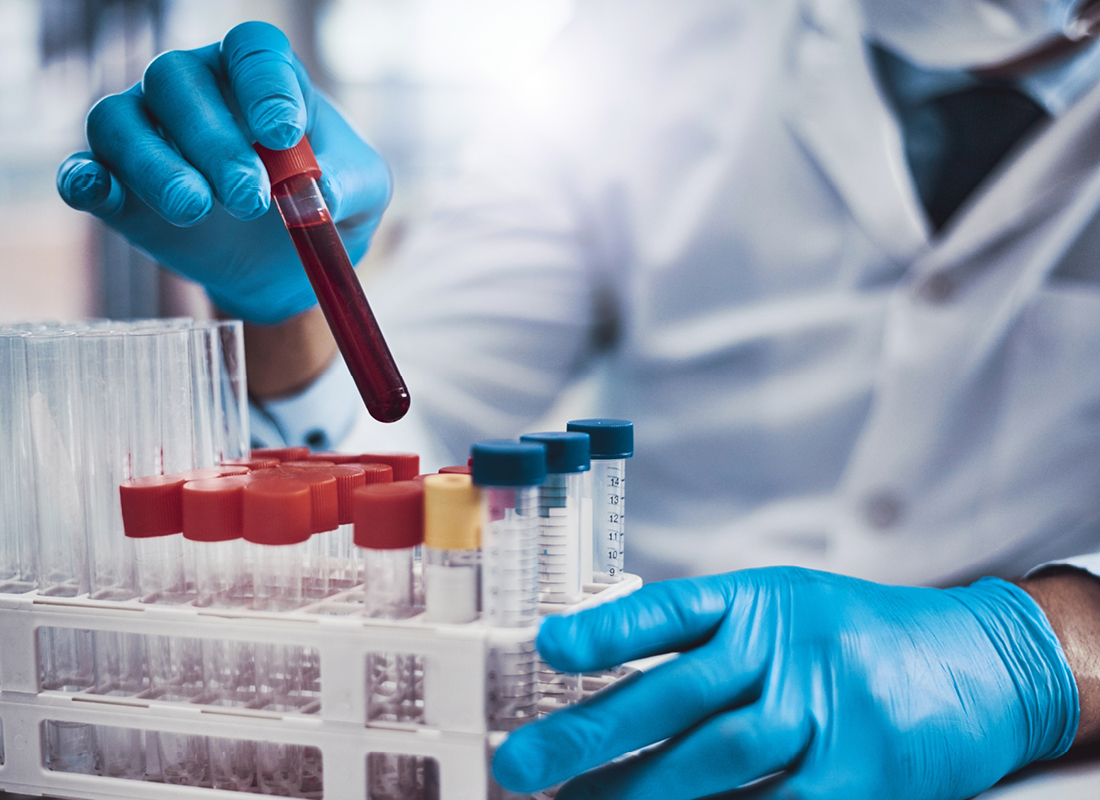FDA Targets High Throughput COVID-19 Tests for Recall Due to Risks of False Positives
Troubles continue for one of the country’s leading producers of rapid COVID-19 diagnostics. In September, the US Food and Drug Administration posted an alert to its website warning testing labs of the potential for false positive tests from a pair of molecular SARS-CoV-2 detection kits from Abbott Laboratories—the Alinity m SARS CoV-2 AMP Kit and Alinity m Resp-4-Plex AMP. A month later, FDA upped the ante by issuing a Class I recall for the products. Here’s a quick briefing on the situation. The Abbott Alinity m Assays As society continues to emerge from lockdown, demand has grown for high throughput testing for use in widespread COVID-19 screening. While offering scalability and speed, questions remain about whether high throughput COVID-19 tests are accurate enough to provide a reliable screening solution. Abbott has been among the leaders in developing tests to meet the demand for high throughput COVID-19 test products. The Alinity m SARS-CoV-2 kit is a real-time reverse transcription (RT) polymerase chain reaction (PCR) for qualitative detection of nucleic acid from the virus, received Emergency Use Authorization (EUA) from the FDA in May 2020 and has been granted multiple revisions, including for use on asymptomatic screening and in pooled samples. In December, […]

Troubles continue for one of the country’s leading producers of rapid COVID-19 diagnostics. In September, the US Food and Drug Administration posted an alert to its website warning testing labs of the potential for false positive tests from a pair of molecular SARS-CoV-2 detection kits from Abbott Laboratories—the Alinity m SARS CoV-2 AMP Kit and Alinity m Resp-4-Plex AMP. A month later, FDA upped the ante by issuing a Class I recall for the products. Here’s a quick briefing on the situation.
The Abbott Alinity m Assays
As society continues to emerge from lockdown, demand has grown for high throughput testing for use in widespread COVID-19 screening. While offering scalability and speed, questions remain about whether high throughput COVID-19 tests are accurate enough to provide a reliable screening solution.
Abbott has been among the leaders in developing tests to meet the demand for high throughput COVID-19 test products. The Alinity m SARS-CoV-2 kit is a real-time reverse transcription (RT) polymerase chain reaction (PCR) for qualitative detection of nucleic acid from the virus, received Emergency Use Authorization (EUA) from the FDA in May 2020 and has been granted multiple revisions, including for use on asymptomatic screening and in pooled samples. In December, Abbott received EUA for the Alinity m Resp-4-Plex assay, a multiplex respiratory test which detects SARS-CoV-2, influenza A and B, and respiratory syncytial virus.
The False Positives Issues
But problems with the Alinity products have recently begun to surface. In early September, Abbott notified its lab and other healthcare provider customers that it had detected an issue with the software used by special lab processing equipment to prepare swab samples and mix the chemicals for testing with the assays. The problem is that too much liquid may be getting added to samples under certain mixing parameters, resulting in overflow into the neighboring process tray. False positives may occur when a positive sample overflows into a nearby negative one.
The Class I Recall Isn’t Actually a Recall
According to the FDA recall notice, 187 software installations are undergoing corrections. Altogether, those programs are responsible for analyzing the results of more than 10 million already distributed tests: more than 9.9 million Alinity m SARS-CoV-2 tests and just over 48,000 of the Resp-4-Plex assays.
The Class I label indicates that the agency considers the issue serious, and involves a high risk of causing serious adverse events or death. Some potential risks of false positives include unnecessary treatments or isolation, delayed diagnosis of the actual cause of a test-taker’s illness and the continued spread of the virus if people with seemingly positive results are quarantined together, the agency notes.
Even so, the FDA isn’t actually recalling the tests; for now, at least, it’s just warning customers to be wary of the results. Like Abbott’s previous note did, FDA has advised labs and providers to treat all positive results from the two affected assays as “presumptive.”
The FDA recommends retesting positive patient specimens with an alternate authorized test and notifying patients who have receive positive results from the kits since June that they may have had false positive test results and that since they might not have had COVID-19, they may not be carrying antibodies against the virus.
Meanwhile, the agency said it’s working with Abbott to resolve the issues. The update for the SARS-CoV-2 test is nearly complete, while the update for the 4-plex test is expected to be finished in the next few weeks.
This is hardly the first FDA recall of COVID-19 test products. On Oct. 1, recall began on the Ellume COVID-19 Home Test kit, the first over-the-counter antigen self-test to receive EUA from the FDA. The Australian test maker is recalling 400,000 unused kits, citing an undisclosed manufacturing issue responsible for generating a higher rate of false positives. The lateral flow test had posted an overall sensitivity of 96 percent for sensitivity and 100 percent for specificity during trials. The tests were distributed between April and August, with most sold by retailers like Amazon, Target and CVS and a handful of lots distributed by the US Department of Defense (DOD).
Previously, COVID-19 test recalls have been due to elevated risk of false negatives, rather than false positives. That includes this July’s Class I recall of the Quidel Lyra PCR assay for COVID-19. Other leading makers of high throughput COVID-19 tests include LabCorp, Quest Diagnostics and Becton Dickinson.
Subscribe to Clinical Diagnostics Insider to view
Start a Free Trial for immediate access to this article